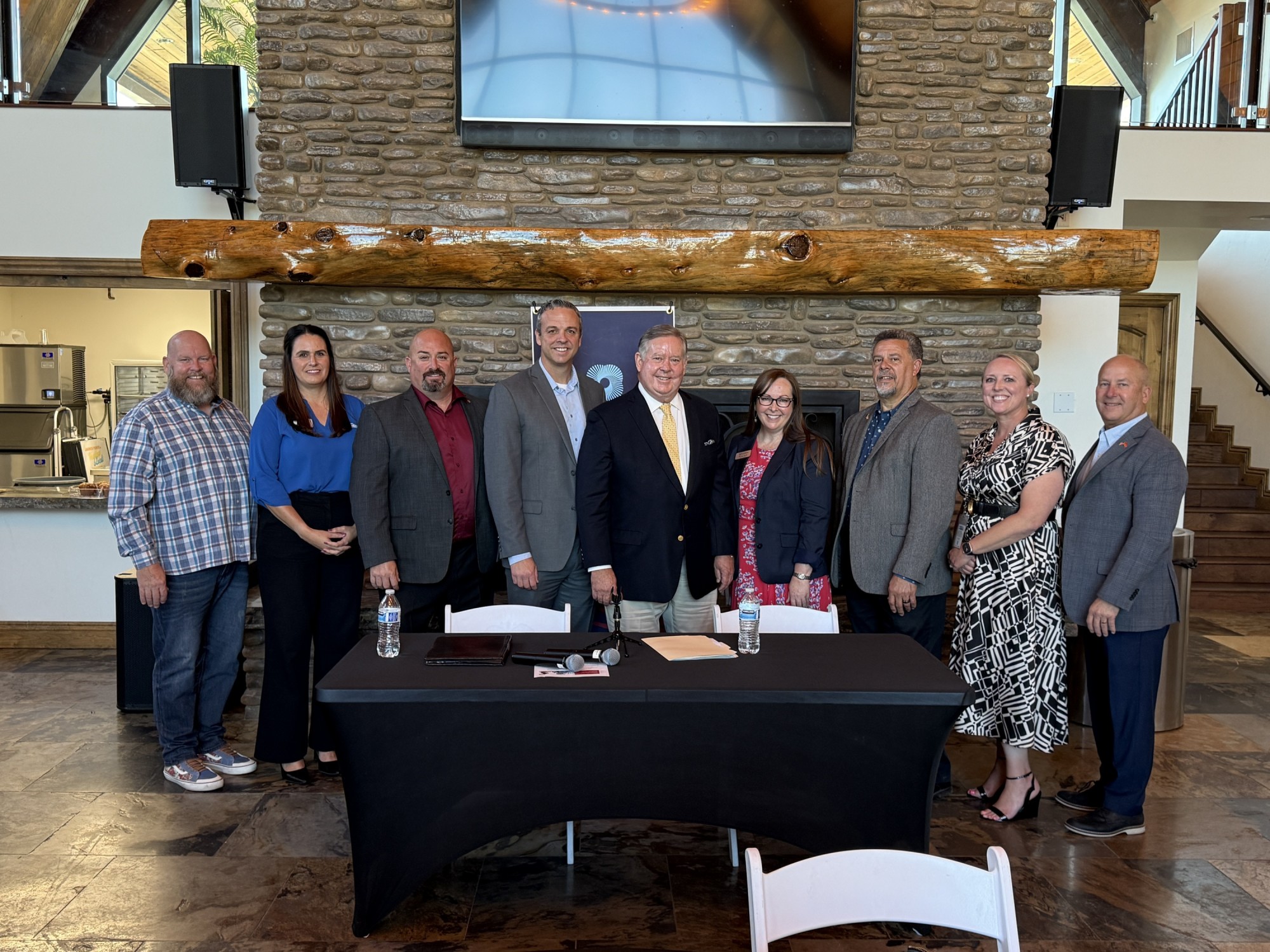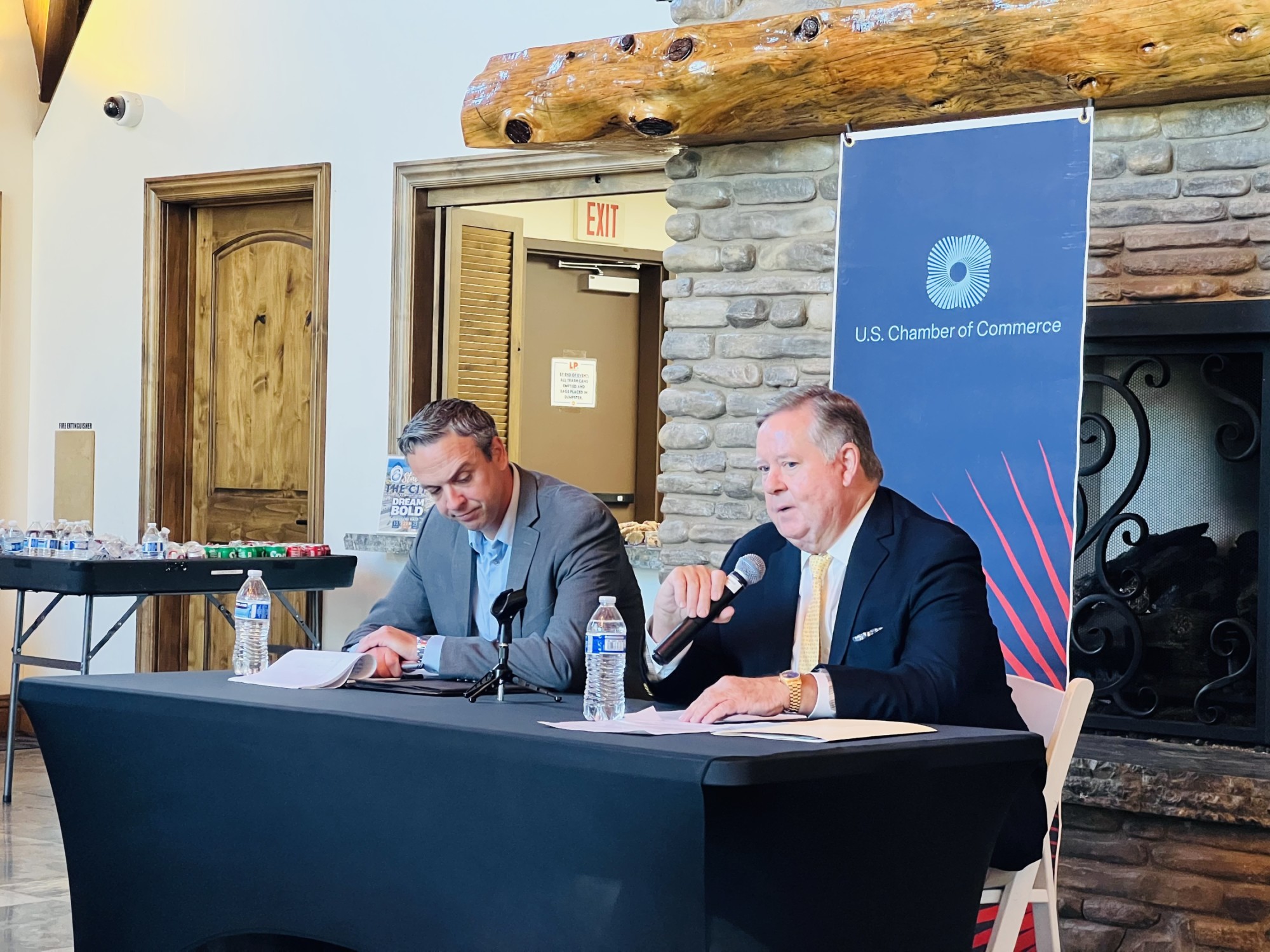
US Chamber of Commerce Tax Roundtable Highlights Key Policy Updates for Businesses
Hosted in collaboration with the Southwest California Legislative Council (SWCLC)
Last week, local business and community leaders gathered for a Tax Roundtable hosted by the U.S. Chamber of Commerce in collaboration with the Southwest California Legislative Council (SWCLC). Congressman Ken Calvert, 41st District, and Jennings Imel, Vice President of the Western Region for the U.S. Chamber of Commerce, led the discussion. The meeting, held at the Community Hall at Launch Pointe in Lake Elsinore, offered an in-depth update on significant tax, regulatory, and policy issues affecting businesses of all sizes. (Read the U.S. Chamber press release here.)
Commerce in collaboration with the Southwest California Legislative Council (SWCLC). Congressman Ken Calvert, 41st District, and Jennings Imel, Vice President of the Western Region for the U.S. Chamber of Commerce, led the discussion. The meeting, held at the Community Hall at Launch Pointe in Lake Elsinore, offered an in-depth update on significant tax, regulatory, and policy issues affecting businesses of all sizes. (Read the U.S. Chamber press release here.)
Key Tax Updates and Legislative Changes
A major topic was recent reforms to tax provisions that impact both large and small businesses. Updates included:
- Bonus Depreciation and Equipment Deduction: Businesses that purchased equipment between 2022 and 2024 may now retroactively claim a full 100% deduction, eliminating the previous requirement to amortize costs over six years. New production, manufacturing, or refining facilities under construction within the next four years will also qualify for full expensing.
- Employee Benefits: The employer-provided child care tax credit has been expanded from $150,000 to $500,000. Employers can continue offering telehealth services through flexible spending and health savings accounts, and tax benefits for assisting with employee student loan repayment have been renewed.
- Permanent Provisions: Several tax reforms have been made permanent, such as the 20% Qualified Business Income deduction for pass-through entities. However, the State and Local Tax (SALT) deduction cap, recently increased from $10,000 to $40,000, will remain in place only until 2030.
Small Business Focus
Speakers emphasized the importance of small business participation in the policy process. Approximately 75% of small businesses report direct benefits from the Tax Cuts and Jobs Act provisions.
CDFI Fund Concerns
The Community Development Financial Institutions (CDFI) Fund, which supports microfinancing and business lending in underserved communities, was also discussed. Concerns were raised about potential funding rescissions by the Office of Management and Budget. Congressman Calvert reaffirmed the importance of protecting these funds and committed to reviewing any proposed rescissions.
Infrastructure and Regulatory Challenges
Participants discussed both successes and ongoing challenges in securing federal infrastructure funding. While $15 million was recently secured for local projects, regulatory and environmental review processes continue to cause costly delays. Calls for both federal and state regulatory reform were paired with discussion of AI-powered solutions to streamline permitting.
Healthcare, Insurance, and Workforce Issues
The meeting also addressed the impact of Medicaid cuts, growing insurance costs in California, and the need for comprehensive immigration reform to address workforce shortages in agriculture and service industries. Rapid technological changes in automation and artificial intelligence are reshaping multiple industries, and participants noted the importance of preparing the workforce for these shifts.
Key Takeaways
- The importance of making beneficial tax provisions permanent to give businesses long-term planning certainty.
- The need for regulatory reform to accelerate infrastructure improvements and reduce costs.
- The critical role of storytelling by businesses to illustrate how policy changes affect operations and communities.
The session concluded with a shared commitment to continued dialogue, bipartisan problem-solving, and active advocacy. Attendees were encouraged to submit their stories on how recent tax reforms have impacted their businesses and to stay engaged as these issues evolve.
For more information on upcoming legislative discussions and advocacy opportunities, please visit www.southwestca.org.
